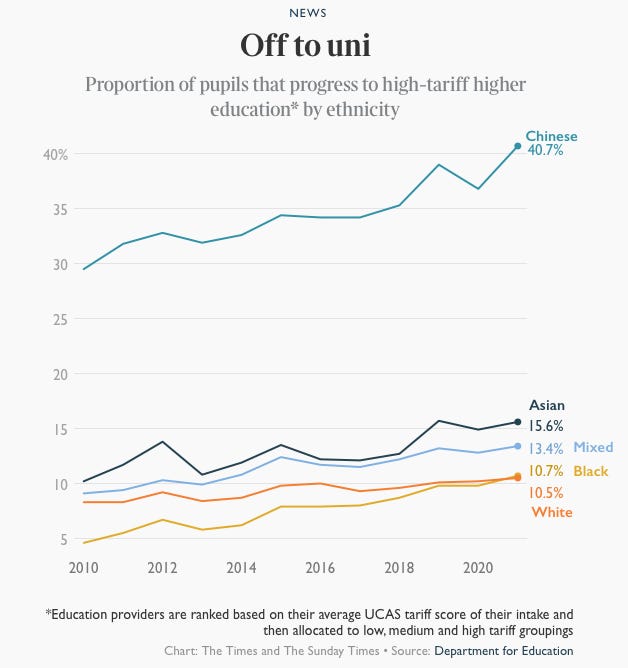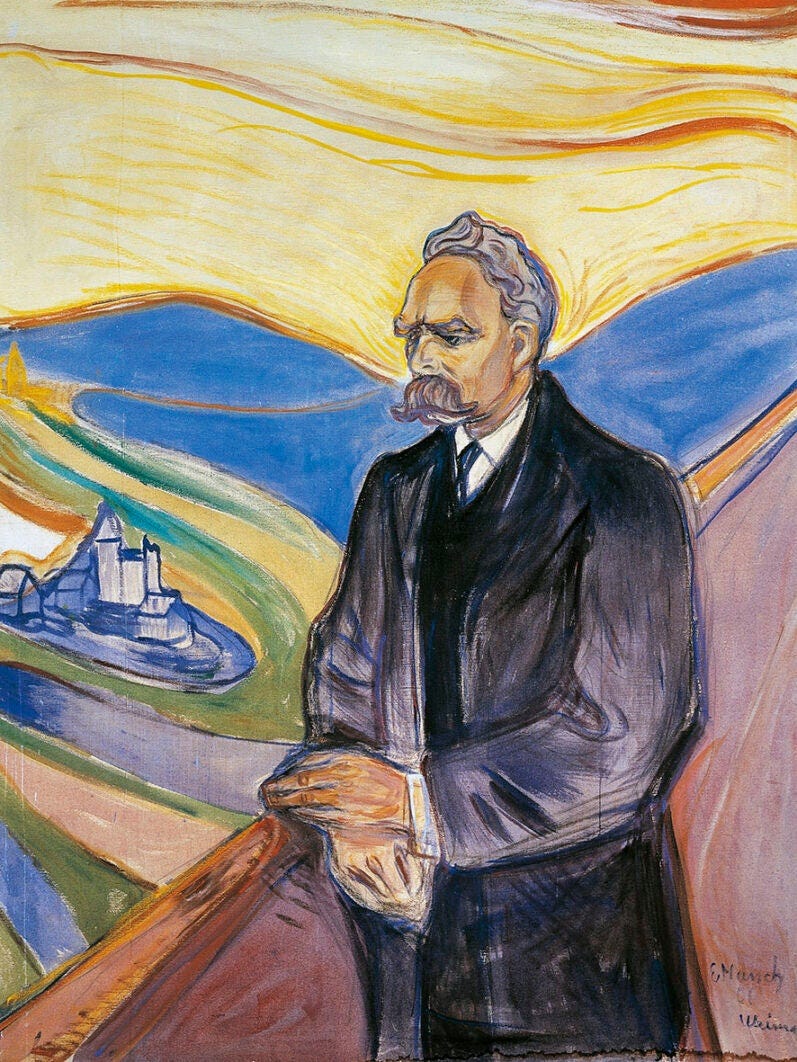Journalism as a system of domination: Peter Dutton edition
Journalism as a system of domination: Peter Dutton edition

Peter Dutton is a human being. That’s not a moral point I’m making — I’m just talking about the task of making sense of others — particularly since, if we can’t kill them, we have to live with them. (And trying to kill someone pretty much always gets in the way of your being the best ‘you’ you can be). I’m fond of the way German philosopher Hans Georg Gadamer put the point:
One does not go about identifying the weaknesses of what another person says in order to prove that one is always right …. one seeks instead as far as possible to strengthen the other’s viewpoint so that what the other person has to say becomes illuminating. Such an attitude seems essential to me for any understanding at all to come about. This is nothing more than an observation. It has nothing to do with an ‘appeal’ and nothing at all to do with ethics. Even immoral beings try to understand one another.
In the clip above Dutton shows every sign of trying to illuminate his own position for the audience. But the journalist has already decided that explanation or illumination isn’t the point. As I wrote in “Journalism as a system of domination” the first time I ever saw Yanis Varoufakis on Tele:
It’s Greece versus the Troika. Varoufakis verses Merkel. It’s ultimatums, struggle. Someone wins. Someone loses. It’s responsibility and fiscal conservatism versus naïve utopianism etc etc. Never imagine that some new kind of meaning might be forged in an exchange of views – the only task is that of fitting the interviewee – however reluctantly, however invidiously, into one of numerous pre-ordained pigeonholes.


What ails us: you know — really?
This book review provides a good survey of one of our many collapsing institutions — in this case school education. Describing the debates of candidates for his local school board, the author begins by suggesting that we’re caught in a giant fallacy of the excluded middle.
It quickly became apparent that nearly all of the candidate platforms fit neatly into one of two distorted worldviews: either that of the MSNBC viewer or the Fox News viewer.
The meat of the review is captured in this passage:
Without sacrificing a smidgen of coherence, Adams cuts to the core of a number of misleading paradoxes. He takes on ubiquitous porn and Tinder hookup culture while noting the counterintuitive link to an equally troubling decline in sex across America. He argues that the emphasis millennials place on travel and having a “positive impact” may sound high-minded, but, more often, these are an unfulfilling substitute for traditional concerns like marriage and having children. Finally, he bemoans the fecklessness and unwillingness of many young people to commit to a profession but also the culture of “careerism” that has convinced so many of them to seek their fulfillment in the “Cathedral of Perpetual Hustle.”
For the millennial and Gen Z sold on the merits of digital nomadism, remote working, and getting “insta-famous,” Adams offers an essential counterpoint. The point of life is not ceaseless pleasure, easy fame, frictionless convenience, or infinite novelty. What ultimately matters may actually be all those things we avoid (many of which have been actively demonized): sacrifice, humility, tradition, religion, community, family, and friendship. At the end of the day, these pesky entanglements, commitments, and responsibilities are what give life meaning.
Ironically I think the article itself is caught in the same kind of problem, once it tells us what the problem is. “Postmodernism”. I’m not a fan of most of the literature that people describe as ‘postmodernism’ and have concluded that a lot of it is dreck. But it seems to me that it’s best approached as an attempt to describe and explore a culture (ours) in which, as Marx prophesied, all that was solid has melted into air. The alternative ‘moral panic’ interpretation proposed by those great interpreters of our world like Steven Pinker and Jordan Peterson is that postmodernism stands for the proposition that everything is a social construction including the number of moons circling Jupiter. This is true in a trivial sense of course, but only in that sense and if anyone really is saying that seriously, they’re best ignored.
So on the diagnosis, it’s a ‘no’ from me, but I found the article very powerful about what is wrong and the paradoxes — and indeed monsters that are rising from the murk.
Karl Polanyi: Our Obsolete Market Mentality
I’m a big fan of Michael Polanyi, Karl’s brother but haven’t ever got very much into Karl. In any event I ran into this 1947 and it’s a very powerful summary of his views — and less hard work than reading them in The Great Transformation (1944). It gets a little lost I think towards the end when he’s trying to make space for what he thinks the answer is, but he doesn’t get very far on that topic alas, at least as far as practical suggestions that make you think he knows how to make things better.
Liberal capitalism was in effect man's initial response to the challenge of' the Industrial Revolution. In order to allow scope to the use of elaborate powerful machinery, we transformed human economy into a self-adjusting system of markets, and cast our thoughts and values in the mold of this unique innovation. Today ... how to organize human life in a machine society is a question that confronts us anew. Behind the fading fabric of competitive capitalism there looms the potent of an industrial civilization with its paralyzing division of labor, standardization of life, supremacy of mechanism over organism, and organization over spontaneity. Science itself is haunted by insanity. This is the abiding concern.
Liz Chaney another take
The Newyorker has done me a favour by putting out a long article on Liz Cheney asking the obvious question that I raised in a previous article.
One supposed mystery about Cheney: If she is so horrified by Trump’s war on democracy, why did it take her until after the November, 2020, election to notice it.…
She was often on Trump’s side. Many of her allies became Never Trumpers; Cheney adapted, focussing on the enemies that she shared with the President. After the release of the “Access Hollywood” tape in which Trump bragged about grabbing women “by the pussy,” Cheney put out a statement saying, “Hillary’s actions have been far worse.”
But like I said there’s not too much picking and choosing in foxholes. It’s another write up of a woman who decided to be brave and now lives with endless crazed death threats — as you do in the States if you want to do something big.
Farewell Judith
Wonderful 2013 interview with Richard Fidler.
Farewell Ralph
Ralph McLean was a good friend of mine. We were born in the same year and met when I went to Melbourne Uni in the late 1970s. Back when the rent on retail space (and the Mafia) allowed such establishments, we spent far more time than we should have playing pinball in Lygon St pinball parlours between midnight and 3.00 am. Ralph became a Fitzroy councillor in 1982 and Mayor two years later. The picture above captures him at his chubby, chirpy, cheeky best.
In any event I was wondering around Fitzroy on Tuesday and came upon this sculpture.
Here is the plaque:
Brad Delong: Is China the last great boom?
Hamilton believed very strongly that the US government needed to focus on building up manufacturing, channels through which savings be invested in industry, and exports different from those of America’s resource-based comparative advantage. The consequence would be the creation of engineering communities of technological competence which would then spread knowledge of how to be productive throughout the country. Ever since, every country that has successfully followed the Hamiltonian path—that is kept its manufacturing- and export-subsidization policies focused on boosting those firms that do actually succeed in making products foreigners are willing to buy and not havens for rent-seekers—have succeeded first in escaping poverty and second in escaping the middle-income trap.
The worry is that China will turn out to be the last economy able to take this road–that after China manufacturing will be simply too small and require too little labor as computers substitute for brains as cybernetic control mechanisms to be an engine of economy-wide growth. And the fear is that a country like India that tries to take the services-export route will find that competence in service exports does not more than competence in natural-resource exports to produce the engineering communities of technological competence which generate the economy-wide spillovers needed for modern economic growth that achieves the world technological and productivity frontier.
Very interesting times. Very interesting puzzles…
Matt Goodwin on White disadvantage
Somebody once said it is easier to raise strong children than fix broken men. I think about that a lot when, like this week, I download the latest statistics on what is really happening in Britain’s education system.
Britain, so the story goes, is an institutionally racist society in which sinister ‘power structures’ are holding back minorities while the white majority pushes ahead. But the latest statistics fly in the face of this narrative. They also point to how something is going terribly wrong among white working-class boys. …
What this points to, in my eyes at least, is the critical importance of other factors that are routinely written out of the debate —such as the very different rates of family breakdown across different ethnic groups, the extent to which, if at all, those families are transmitting cultural values to their children which stress the importance of education, hard work, and aspiration, and the strength of their local communities.
Meanwhile at Bletchley


The end of the global order
This is a conversation between three men who have all kinds of mannerisms and affectations that give me the willies. Mannerisms that convey how intelligent they are. How sensible they are. How reasonable they are. How many corporate clients they have. And those with a very different bent of mind? Well they’re just irrational and should go read the spate of new books on the need to be more rational.
In any event, all that is en passant because, you’ll either disagree with those thoughts of mine and wonder what’s got into me, in which case you can ignore them. Or you can agree, in which case I still recommend this discussion as worth your time.
Something I ran into
A good session band including Eric Clapton, Paul McCartney, Ringo Star and the songwriter’s son. It’s quite something how tight all this is.
Which put me in mind of the same song done by another talented group of folks.


The case for theft-tanks: Rory Sutherland being funny — and on point
The Conservative party leadership contest is a milestone for diversity and inclusion. This time, we get to choose between someone who studied philosophy, politics and economics at Lincoln College, Oxford and someone who studied philosophy, politics and economics at Merton College, Oxford. I can barely contain my excitement.
Renewables: are you feeling lucky?
An article by a pretty well informed engineer asserting — counterculturally — that nuclear energy would be much faster to build than renewables. It’s a rather tendentious conceit but that’s all it is, there’s a lot of meat in the article which I found pretty compelling. Then again, I’m no expert.
We will need all the good ideas we can find. What we don't need is to waste time on technology that is simply cheap, nasty and slow. Currently, too many people are preoccupied with plugging the holes in renewable intermittency rather than recognising that it is simply bad technology; you can add batteries to a solar panel, but it's still just a solar panel.

In case you were wondering whether coal was our friend


John Gray on the end of Nietzsche’s lucid days
I enjoyed this piece, though vouching for its superiority as a commentary on Nietzsche is above my pay-grade.
Though the two never met, Schopenhauer was a pivotal figure in Nietzsche’s life. Discovering his treatise in a second-hand bookshop while a student in Leipzig in 1865, Nietzsche was overwhelmed. He came to reject its philosophy as life-negating, but both thinkers looked for a way of living that did not depend on theistic myths. While Nietzsche proclaimed the death of God from the rooftops, Schopenhauer noted the deity’s demise and calmly moved on. The pessimist believed fulfilment could be found only in renouncing the ego, but took care not to practise his philosophy, fashioning a satisfyingly selfish life for himself. A colder and merrier soul than his sometime disciple, Schopenhauer felt no need to save humankind. Nietzsche, on the other hand, could not rid himself of the belief – he was the son of a pastor, after all – that the world needed redeeming. …
By the time he died in August 1900, he was on the way to becoming a global intellectual celebrity. His reputation as a precursor of fascism was formed by the editions of his works that his sister – a Nazi sympathiser, whose funeral Hitler attended – edited and at times redacted; she may also have forged some letters from him. Nietzsche was a lifelong opponent of German nationalism – so much so that on several occasions he denied his Germany ethnicity and claimed Polish origins. Preferring the Old to the New Testament, he loathed anti-Semitism. In many ways he was the opposite of a proto-Nazi. At the same time he planted a bomb under the foundations of liberal rationalism, whose thunderous detonation can be heard today.
In the autumn of 1880, Pourtalès records, Nietzsche was living in an attic room above a grass-covered street in Genoa. He spent his days walking through the city, composing attacks on Christian values. The fruit of his meditations was one of his best books, The Gay Science (1882), where he proclaimed the death of God as an opportunity to find joy in earthly things. Watching him always alone, book in hand, his neighbours called him “il piccolo santo”, the little saint, and gave him candles for his devotions, which he accepted gladly. With “no alcohol, no renown, no women, no newspapers, no honours”, as he put it, he turned a modest existence on a professor’s pension into a life of holy poverty. “How at root he is a Christian,” Pourtalès writes, “this future anti-Christ!” Near the end in Turin, watching the passing cortège of a famous admiral, Nietzsche had the impression that he was attending his own state funeral. Accosting passers-by, he told them, “Be joyful. I am God. I am just in disguise.”
Dreckwatch: Environmentalist edition
While I was reading the New Statesman from which the above article came, I started reading this article on a “left-wing intellectual and author of the new book The Value of a Whale who explains why “green capitalism is its own form of denial”. But after getting through about half of it, it was proving profoundly unrewarding so I gave up. Yes, offsets can be abused, and if they are we shouldn't allow them. That’s no more an argument against offsets than the argument that some people defraud tax or the dole is an argument against them. Perhaps it improved after about four of those examples, but life is too short.
Worth a look
Labor unions are hot, but their moment may not last - Los Angeles Times via @inkl https://inkl.com/a/qvxJZdFMxvL


















